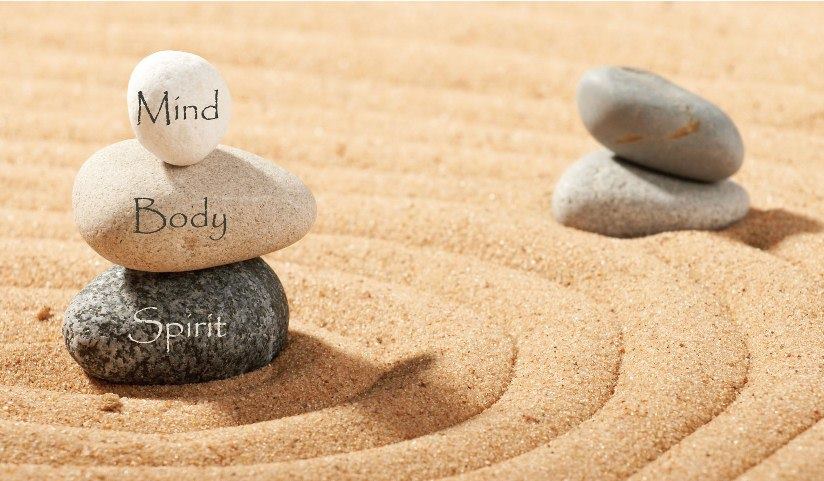Poor Self-Esteem
PH884101 • 26 May 2020
What is poor Self-esteem?
There are many terms which are used in connection with the term low self-esteem.
A poor self-image basically means that the picture in a person's mind of how they view their physical attributes or their body self-image and their success in mastering their environment, e.g. success, abilities, intelligence and their overall self-worth can be drastically distorted by the image they hold of themselves.
Self-image is often described as a personal mirror which drastically alters in size and shape into non-truthful proportions which in no way resemble how a person actually appears.
This self-perception of how their view themselves, their own perception of how others see them, and the thoughts and beliefs they have about themselves, their environment, and they future are affected in three main areas and these are:
Self-respect
Self-worth
Self-acceptance
Therefore, the greater the distance between the ideal self and the real self the lower the self-esteem and the smaller the gap is between the two, then the higher their self-esteem quotient.
When they hold negative and dis-empowering views and beliefs about themselves, this keep them from achieving the goals they set by being critical, punishing, and constantly negatively evaluating their abilities and this will eventually lead to poor self-esteem.
Low self-esteem usually starts in childhood. Our teachers, friends, siblings, parents, and even the media send us positive and negative messages about ourselves.
For some reason, the message that you are not good enough is the one that stays with you.
Perhaps we found it difficult to live up to other people's expectations of us, or to our own expectations.
Stress and difficult life events, such as serious illness or a bereavement, can have a negative effect on self-esteem.
If we have low self-esteem or confidence then we may hide ourselves away from social situations, stop trying new things also avoid things we find challenging.
In the short term, avoiding challenging and difficult situations might make us feel safe.
Low self- esteem is affecting every part of our lives so it is a good time to change that all.
Share

So many times, we just focus on physical health and miss the fact that health means a healthy mind, body, spirit. The way we live our lives daily and what we think, feel, and behave determine the future of our health. We learnt behaviour if we feel ill, sick then we go to the GP and get medication. But there can be much more behind an illness or disease. Finding the root cause of the illness we get just guessing from the doctor but who told us the truth. If you provide the body with the right physical and psychological conditions, it will be better equipped to heal itself. The feeling that cannot find its expression in tears causes another organ to weep. This is the most important point. It is a fundamental tenet of naturopathic medicine that the body is a very powerful self-regenerating organism. The human body possesses all the necessary systems for regeneration, rejuvenation, and rebuilding. It also has an extremely efficient immune system, which is capable of fending off the most damaging invaders. If this is the case, why is there such a thing as a disease? The very word disease means that the body is in a state of dis-ease. It is in this condition because it is not being provided with the optimal conditions that it must have to maintain itself in a healthy condition. Unless the body is provided with the right conditions, both mentally physically, and spiritually, it cannot and will not function at its optimal level. The triangle of Mind, Body and Spirit as represents the three inseparable components of our being and wellness. Your mind is affected by your body. Mind, Body, Spirit means that our well-being comes from not just physical health, but from mental health and spiritual health as well. None of these factors can be individually affected without there being an effect on the other two. In the same line of thought, you cannot treat one without due consideration of the effect upon the other two. Our body as an organism always seeks to return itself to a given position of balance between every aspect of its complex structure and behaviour, this behavioural tendency is known as homeostasis. So the good health is about a good balance between mind, body, and spirit; just as homeostasis within the organism is about a good balance. Here are ideas that help me with the Mind/Body/Spirit connection: 1.) Your emotions affect your health so be aware of your thoughts, feelings and behaviours. Your body responds to the way you think, feel and act that is the mind/body/spirit connection. Poor emotional health can weaken your body's immune system making you more likely to get colds and flu and other infections during emotionally difficult times - especially at this time of year! Taking care of yourself physically helps you emotionally. Exercising to relieve tension, eating healthy food and getting enough sleep all help your physical and emotional health. However, I so believe in meditation to bring your emotions into balance by guided thought which ultimately calms your mind and body and nourishes your spirit. 2.) Food affects both our bodies and minds, we are what we eat. The food we eat affects our brains therefore our minds. Eat nutritious primal foods daily, they have a high vibrational count which is good for the spirit too. Overeating is a symptom of not properly quenching our needs - when you eat simply but well you are satiated and you can throw away the diet books! Also, hunger can be just a sign of de-hydration so drink water and see how much energy flows into your body the cells in your body thrive on water for cleansing and energy. 3.) Be gentle for that shows great strength. I truly believe humanity is going through a massive shift at the moment into a whole new energy and level of consciousness. We are coming into a much more feminine energy era where that hard nosed male, old fashioned, city aggressiveness will not work,there is a better, gentler way to connect with people in business and personal life. 4.) Walk your talk with honesty and integrity people will feel when you are not, by your non-aligned body language. We cannot teach what we don't feel but when you connect with people on a heart level by making them feel a little better that's where the magic happens! 5.) Everything is connected. We are one holistic system and we need to understand the ecology of our bodies because a healthy mind affects our body and a healthy body affects our mind! Our mental world is where we live, the place we cannot leave, where all our experiences exist. The subconscious mind is a million times more powerful than the conscious mind so its worth getting to know how it works and understanding that past experiences stored in the subconscious can still be affecting our minds today! If you change your beliefs and attitudes you can change your life. The most powerful medicine you can have in the world is between your ears!

It is believed that overweight and obese people were compulsive eaters, anxious, depressed, under stress, or trying to compensate for insufficiency in their lives. Almost everyone seems to be getting heavier and obesity has become a national issue but dismissing the idea that weight gain is a personal emotional problem. From my experience, I find it nearly impossible to try and address one without the other. Obesity can negatively affect mental health, and the frequent association has a large impact on the length and quality of life. People with enduring mental health problems are two to three times more likely to develop obesity and related disorders such as diabetes and heart disease. Some research suggests that depressed persons are more likely to develop the metabolic syndrome that often accompanies excess weight especially when this weight is concentrated around the waist. People may console themselves with "comfort food" which is usually high in fat, sugar, and calories because they are anxious, lonely, angry, or suffering from low self-esteem. There is a characteristic type of depression with symptoms that include lethargy and overeating. Like most mind-body interactions, obesity can lead to ill health which is linked to depression and anxiety. People with obesity can develop negative self-image and produce negative thinking about themselves and the world around them. Additionally, overweight people are also more likely to lose the psychological benefits of exercise. If they feel rejected, unattractive, or suffer social discrimination, the emotional strain may cause further weight gain. The problem is worse if they fail to lose weight and are blamed (or blame themselves) for lack of self-control. The therapeutic approaches available for obesity. The pillars of this therapy are self-monitoring and stimulus control. Therapy help repel self-defeating thoughts and reject unrealistic goals.



